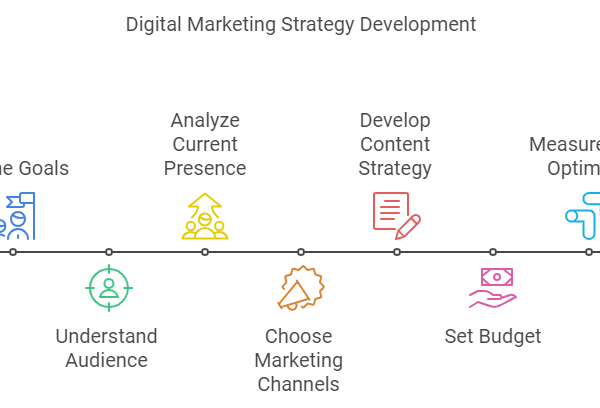
In the age of constant connectivity, the idea of digital disconnection might seem counterintuitive. However, research suggests that taking intentional breaks from digital devices can yield significant psychological benefits. Digital disconnection refers to consciously unplugging from digital devices and online platforms. It involves setting boundaries to limit screen time and prioritize real-life experiences. This intentional break from technology fosters mental rejuvenation, improved focus, and stronger connections with oneself and others. This article delves into the various ways in which disconnecting from digital technology can positively impact mental well-being.
Understanding Digital Disconnection
Before delving into its psychological benefits, it’s essential to understand what digital disconnection entails. Digital disconnection refers to deliberately disconnecting from digital devices such as smartphones, computers, tablets, and social media platforms for a specified period. It involves creating boundaries to limit digital consumption and prioritize offline experiences.Reduced Stress and Anxiety
One of the most notable psychological benefits of digital disconnection is the reduction in stress and anxiety levels. Constant exposure to digital devices and social media can lead to information overload and feelings of being constantly ‘switched on.’ Taking a break allows individuals to unwind, relax, and recharge mentally, leading to decreased stress and anxiety levels.Improved Sleep Quality
Digital devices, particularly screens emitting blue light, can disrupt the body’s natural sleep-wake cycle, leading to poor sleep quality and insomnia. Digital disconnection before bedtime allows individuals to disconnect from stimulating content, promoting better sleep hygiene and improving overall sleep quality. Consequently, improved sleep enhances cognitive function, mood regulation, and overall well-being.Enhanced Focus and Productivity
Digital distractions can hinder concentration and productivity, especially in today’s fast-paced world. Constant notifications, emails, and social media updates can fragment attention and decrease task performance. Disconnecting from digital devices enables individuals to focus fully on tasks at hand, leading to increased productivity, efficiency, and a sense of accomplishment.Promotion of Mindfulness and Presence
Digital disconnection encourages individuals to be more present in the moment and engage fully with their surroundings. Without the constant urge to check notifications or update social media statuses, people can cultivate mindfulness and awareness of the present moment. This practice fosters deeper connections with others, appreciation for nature, and overall life satisfaction.Strengthened Relationships
Excessive digital usage can interfere with real-life social interactions and diminish the quality of relationships. By disconnecting from digital devices, individuals can allocate more time and attention to meaningful face-to-face interactions with friends, family, and loved ones. This fosters deeper connections, improves communication skills, and strengthens interpersonal relationships.Enhanced Emotional Well-being
Digital disconnection allows individuals to break free from the comparison trap often perpetuated by social media platforms. By disconnecting, people can focus on their own lives without constantly comparing themselves to others’ curated online personas. This reduction in social comparison leads to enhanced self-esteem, greater self-acceptance, and improved emotional well-being.Encouragement of Outdoor Activities
Spending excessive time on digital devices often leads to a sedentary lifestyle, contributing to various health issues such as obesity and cardiovascular problems. Digital disconnection encourages individuals to engage in outdoor activities such as walking, hiking, or cycling, promoting physical health and overall vitality. Exposure to nature has also been linked to reduced stress levels and improved mood.Fostering Creativity and Innovation
Constant exposure to digital content can stifle creativity by inundating the mind with preexisting ideas and information. Disconnecting from digital devices provides individuals with the mental space and freedom to explore their creativity, think outside the box, and generate innovative ideas. This creative rejuvenation can positively impact various aspects of life, including work, hobbies, and personal projects.Cultivation of Self-reflection and Introspection
Digital disconnection creates opportunities for self-reflection and introspection, allowing individuals to disconnect from external distractions and tune into their inner thoughts and emotions. Through introspection, people can gain valuable insights into their values, goals, and aspirations, leading to personal growth, self-awareness, and a deeper understanding of oneself.Conclusion
In conclusion, digital disconnection offers a myriad of psychological benefits that contribute to overall well-being and life satisfaction. By intentionally disconnecting from digital devices, individuals can reduce stress and anxiety, improve sleep quality, enhance focus and productivity, promote mindfulness and presence, strengthen relationships, foster creativity and innovation, and cultivate self-reflection and introspection. Incorporating regular digital detoxes into one’s lifestyle can lead to profound positive changes in mental health and quality of life. click here to visit websiteWhat's your reaction?
Excited
0 Happy
0 In Love
0 Not Sure
0 Silly
0










